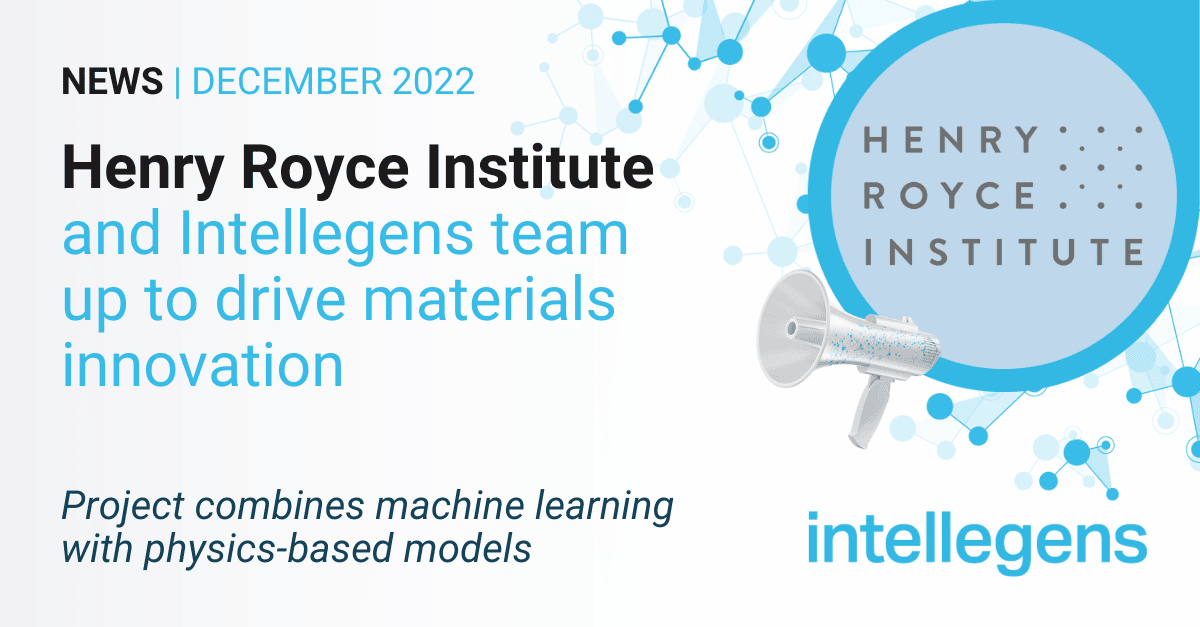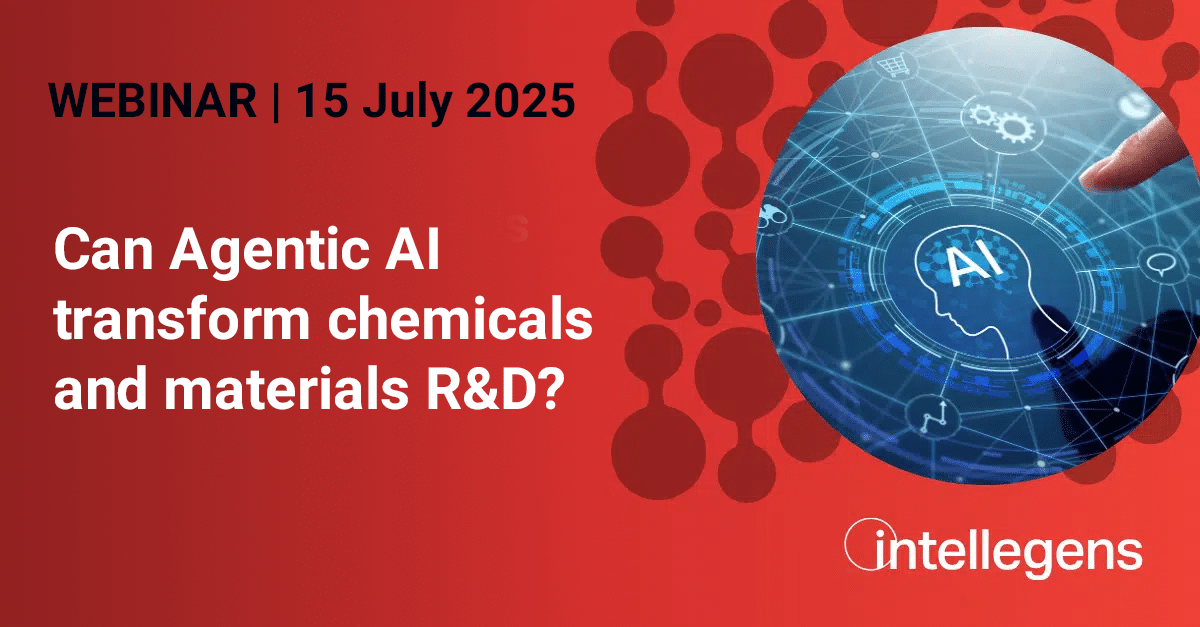Intellegens has won funding from the Henry Royce Institute (Royce) to further advance the use of machine learning approaches in the design and development of new materials.
Novel materials technologies will be essential to progress towards a sustainable future, for example, by lowering the energy requirements for large-scale industrial processes or enabling the replacement of environmentally-harmful chemicals and raw materials. The new project will enable materials R&D teams to combine Artificial Intelligence (AI) methods with proven physics-based models to accelerate their research.

The funding is provided under the Materials Challenge Accelerator Programme (MCAP), recently announced by Royce.
Intellegens provides unique software based on machine learning, a branch of AI that learns from sample data to make predictions or decisions without requiring any additional knowledge of the system studied. Conversely, in materials science, a host of well-known physics-based models and ‘rule of thumb’ methods do apply knowledge of the material system from empirical or theoretical studies. By combining these complementary approaches, R&D teams will generate new insight, faster. For example, while physics-based models produce results based on well-understood relationships, machine learning can discover relationships that may otherwise be missed. Some physics-based calculations, while providing deep insight, are time-consuming and demand large computational resources. Machine learning can focus these calculations on the options that are most likely to succeed.
Royce identified the importance of such integration in its Materials 4.0 Roadmap, which recognised “The need for the development of integrated tools […] to dramatically reduce the time of materials development.” In the new project, Intellegens will collaborate with the leading industrial R&D organisations who are users of its Alchemite™ machine learning software to develop a framework that combines Alchemite™ analysis with insight from key physics-based models, as prioritised by these development teams.
“We’re delighted to be working alongside Royce and together with our customers to combine the benefits of machine learning and physics-based models,” said Ben Pelligrini, CEO at Intellegens. “To achieve the materials innovations needed to meet key sustainability goals in the necessary timeframes, computational techniques must play an increasing part. This cannot be about implementing a single computational approach. Rather, we need to bring together the full range of methods and to extract maximum value from the data that they generate.”
About Royce
Royce is the UK national institute for advanced materials research and innovation. Operating with its Hub at The University of Manchester, Royce is a Partnership of nine leading institutions – the universities of Cambridge, Imperial College London, Liverpool, Leeds, Oxford, Sheffield, the National Nuclear Laboratory, and UKAEA. Royce’s associate partners are the universities of Cranfield and Strathclyde. Royce coordinates over £300 million of facilities, providing a joined-up framework that can deliver beyond the current capabilities of individual Partners or research teams.[/vc_column_text][vc_separator][vc_column_text]The project team welcomes further expressions of interest in collaboration to integrate machine learning and physics-based models.

